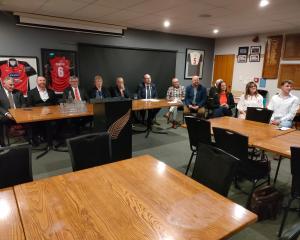
The independent Three Waters Working Group of council and Iwi representatives has delivered its report to Local Government Minister Nanaia Mahuta who is expected to consider them as the government works towards introducing legislation in mid-2022.
A public shareholding structure to maintain public ownership of water assets was among the 47 recommendations.
Ashburton Mayor Neil Brown said he was yet to fully consider the working group's report so could not comment further, and the district council would discuss the report.

The working group has urged the government to give councils a shareholding interest in the four water entities based on population - one share per 50,000 people - partly in an effort to address concerns over loss of ownership and the risk of privatisation.
Working group chair Doug Martin said a major concern they heard from communities was about the privatisation of New Zealand’s water services.
“The public shareholding model will strengthen protections against privatisation requiring unanimous shareholder approval for any such proposal.”
Ensuring that local voice continued to inform and determine how Water Services were managed was another key priority.
The working group also recommended the establishment of sub-groups to ensure local voices were always considered in investment prioritisation.

“We have also recommended the establishment of a Water Ombudsman to oversee Water Service Entities’ interactions with water users.”
Martin said the working group supported the co-governance model for the RRG and sub-groups, and consensus decision-making, which would create enduring decisions that provided better community outcomes.
He said the working group went through a robust, transparent process to reach the recommendations – and had been clear about a dissenting view from Auckland Mayor Phil Goff with respect to Auckland’s position.
“We received an overwhelming message from the sector that the status quo isn’t working, and reform is needed.
“We are proposing a model that places our waters and the health of our communities at the centre of all decision making, it retains public ownership and ensures local representation.”
-By Jonathan Leask












